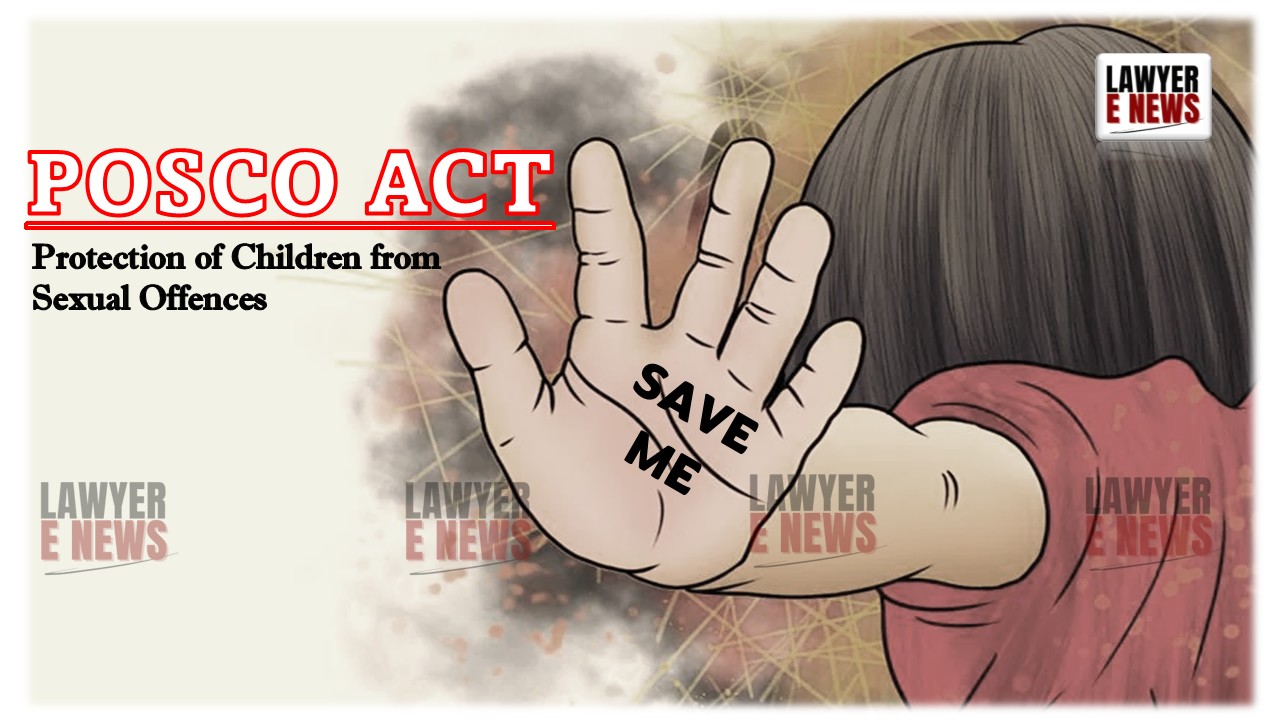-
by sayum
17 February 2026 8:32 AM



Presumption Under Section 29 POCSO Can Be Rebutted by Infirmity in Testimony - Delhi High Court acquitted the appellant who had been convicted under Section 10 read with Section 9(m) of the POCSO Act, setting aside the five-year sentence imposed by the Trial Court in 2022. Justice Sanjeev Narula, in a detailed judgment, found that the prosecution’s case was riddled with contradictions, missing key witnesses, and unreliable testimony, leading to the conclusion that the charge was not proved beyond reasonable doubt.
The Court observed: “When the prosecution’s version is marred by internal contradictions, omitted witnesses, and inconsistencies in material particulars, the accused cannot be held guilty merely on the presumption of Section 29 of the POCSO Act.”
“Victim's Account Must Inspire Confidence—Minor Inconsistencies Can Be Overlooked, But Material Contradictions Cannot”
The prosecutrix, an 11-year-old girl, had alleged that the appellant, her tutor’s father, touched her inappropriately during tuition. However, the Court noted sharp variations in her statements under Sections 161, 164 CrPC, and her courtroom testimony.
Justice Narula held: “While minor inconsistencies in a child’s statement are expected, contradictions about who was present, what was said, and even whether fees were paid, raise serious doubt.”
The Court underlined that while courts can convict solely on a prosecutrix’s testimony, it must be “of sterling quality”, free from material doubt.
“Prosecutrix Alleged Prior Misconduct with Another Girl—But No Such Student Was Identified, Let Alone Examined”
The victim had, in her statement under Section 164 CrPC, claimed the accused had touched another girl’s stomach too. Yet the girl was unnamed, and no corroboration was provided.
The Investigating Officer (PW-5) testified: “I did not find any other child who had made complaint against the accused though in the statement of child victim u/s 164 CrPC there is mentioning of one another child also.”
The Court remarked: “The failure to trace or examine the other alleged victim severely weakens the suggestion of pattern conduct. Such a claim, made and then abandoned, is a red flag.”
“Brother Was Allegedly Present in Class, But Not Examined—Tutor Also Omitted—Independent Witnesses Ignored”
The girl’s own brother, allegedly present in class, was not examined. Nor were any of the 10–12 other students, despite the classroom being the alleged site of occurrence.
The Court stated: “In a case not committed in secrecy but in a room full of students, non-examination of those present becomes not just a lapse, but a structural weakness in prosecution’s case.”
Justice Narula criticized the prosecution for withholding potentially neutral witnesses, noting that the IO admitted students questioned had not supported the prosecutrix.
“Even the Mother’s Version Contradicts the Prosecutrix—She Spoke of Touching of Private Parts, Which the Victim Never Alleged”
PW-2 (mother) testified that the child told her the accused touched her private parts. Yet, the prosecutrix never mentioned this in any of her three statements.
The Court noted: “Where the victim’s own words contradict the first informant's version, and the allegations escalate with each retelling, courts must exercise greater scrutiny, not less.”
“Presumption Under Section 29 Stands Dislodged—Prosecution’s Case Too Unreliable to Trigger It”
Section 29 of the POCSO Act allows courts to presume guilt in certain offences unless rebutted. But, as the Court reiterated, that presumption only arises after foundational facts are established.
Justice Narula concluded: “Here, the foundational facts have been so vitiated by contradictory testimony, missing witnesses, and investigative omissions, that the presumption collapses under its own weight.”
The High Court declared that the prosecution failed to establish guilt beyond reasonable doubt and overturned the Trial Court’s conviction dated 25 August 2022.
“The impugned judgment and order on sentence are set aside. The appellant is acquitted. He shall be released forthwith, if not required in any other case.”
This judgment powerfully reiterates that presumption of guilt under POCSO does not override the foundational requirement of credible and consistent evidence. It affirms that an accused cannot be convicted merely on the weight of allegation, especially when the prosecution's case unravels under scrutiny.
As the Court solemnly reminded: “Justice is not served by conviction at all cost—it is served by upholding fairness, even in the face of troubling allegations.”
Date of Decision: 25 March 2025
